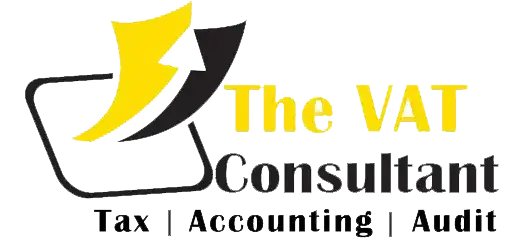According to the UAE’s VAT, all companies that have a place of residence in the UAE and have valued more than AED 375,000 in GCC member states in the past 12 months must be compulsory to use UAE VAT registration. In addition, companies that do not have a place of residence in the UAE, regardless of their turnover, must be mandatory to register for VAT.
For registered companies dealing with other registered companies, it is very important to issue valid documents certifying that they have been supplied. On the other hand, this document is more important for payees who have registered under the value-added tax, because it will serve as the basis for their input tax recovery in this transaction. To learn more about the eligibility and conditions for input tax on recycled supplies, please refer to our blog “Input Tax Recovery”.
The documents issued by all suppliers registered in VAT to registered recipients are called “tax invoices.” The tax invoice is a proof that the supply has occurred and is the basis for the receiver to recover the input tax of the supply. Therefore, tax invoices are very important according to UAE’s value-added tax. The VAT law also stipulates mandatory details in tax invoices.
Let us understand how registered suppliers issue tax invoices based on VAT. For example: Ahmad & Co., a registered clothing supplier in Dubai, offered AED 1,000 to Jumeira Apparels, a registered customer in Sharjah, at a price of AED 100. A 5% value-added tax will be added and the amount is AED 5,000. The tax invoice issued by Ahmed is as follows:
Tax invoice
Companies registered under VAT in the UAE should pay attention to these details that are mandatory in tax invoices. Most importantly, all the required details in the tax invoice have not been omitted. Registered companies can explore options for using the software, which will automatically capture these details and generate tax invoices accordingly. This will help such companies save the time and effort required to manually record and generate tax invoices. Now, let us answer some frequently asked questions about tax invoices.
According to the UAE’s VAT, all companies that have a place of residence in the UAE and have valued more than AED 375,000 in GCC member states in the past 12 months must be compulsory to use UAE VAT registration. In addition, companies that do not have a place of residence in the UAE, regardless of their turnover, must be mandatory to register for VAT.
For registered companies dealing with other registered companies, it is very important to issue valid documents certifying that they have been supplied. On the other hand, this document is more important for payees who have registered under the value-added tax, because it will serve as the basis for their input tax recovery in this transaction. To learn more about the eligibility and conditions for input tax on recycled supplies, please refer to our blog “Input Tax Recovery”.
The documents issued by all suppliers registered in VAT to registered recipients are called “tax invoices.” The tax invoice is a proof that the supply has occurred and is the basis for the receiver to recover the input tax of the supply. Therefore, tax invoices are very important according to UAE’s value-added tax. The VAT law also stipulates mandatory details in tax invoices.
Let us understand how registered suppliers issue tax invoices based on VAT. For example: Ahmad & Co., a registered clothing supplier in Dubai, offered AED 1,000 to Jumeira Apparels, a registered customer in Sharjah, at a price of AED 100. A 5% value-added tax will be added and the amount is AED 5,000. The tax invoice issued by Ahmed is as follows:
Tax invoice
Companies registered under VAT in the UAE should pay attention to these details that are mandatory in tax invoices. Most importantly, all the required details in the tax invoice have not been omitted. Registered companies can explore options for using the software, which will automatically capture these details and generate tax invoices accordingly. This will help such companies save the time and effort required to manually record and generate tax invoices. Now, let us answer some frequently asked questions about tax invoices.
Frequently Asked Question 1: According to the Value Added Tax Law, is there a standard format for tax invoices?
Answer: The “VAT Law” does not provide for any standard format for tax invoices. However, it lists the details required in the tax invoice. These details must be given in each tax invoice issued by the registered supplier.
FAQ 2: Is the tax invoice a valid input tax certificate?
Answer: Yes, the tax invoice is a valid document for the recovery of input tax. However, registered consignees should ensure that their tax registration number is mentioned on the tax invoice issued by the supplier. Please note that the recovery of input tax is subject to certain conditions and qualifications. You can read more about the conditions and eligibility for input tax recovery in our articles “Input Tax Recovery” and “Supplies Not Eligible for Input Tax Recovery”.


























